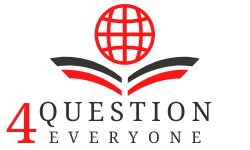Businesses are increasingly adopting web scraping. Reasons for this change include the need to access greater volume of data, improve data collection efficiency, improve the existing data repository and stay ahead of the competition. . However, web scraping has its challenges: from the implementation of anti-web scraping techniques by various websites, which can make data extraction difficult, to the growing popularity of dynamic websites. Fortunately, you can optimize your web data mining operations to overcome these challenges. In this article, we discuss seven expert tips for web scraping optimization. But first, let’s remember what web scraping is.
What is web scraping?
Also known as web data harvesting or web data mining, web scraping is the automated process of collecting data from websites. Typically, web data collection provides a wealth of accurate public data from third-party websites. This data can range from the number of competitors and consumers in a market to products and prices in a given niche. Although web scraping is essential for search engine optimization (SEO), web scrapers can also collect information from reviews, social media platforms, and other websites.
However, extracting data from the web is not always a walk in the park. Indeed, in an attempt to protect the data stored on their web servers and avoid unnecessary requests from bots, which represented around 64% of all internet traffic in 2021, web developers are increasingly implementing anti-bot measures. and anti-scraping, including:
- CAPTCHA
- Connection and conditions of connection
- User agent and header prompts
- honey pot traps
- IP address monitoring and blocking
- AJAX-based dynamic content update
- Surfing behavior analysis
Additionally, some companies restrict access to residents of a certain geographic location. This practice, known as geo-blocking, hides data from a global audience. Luckily, you can access this content using a geo-targeted proxy, such as a UK proxy, to access UK content. At the same time, you may need more technical knowledge to navigate what can sometimes be a complicated data mining process. Fortunately, there are several ways to circumvent these problems. This is to optimize your web scraping operations.
7 expert tips
A proxy server is an intermediary that helps you anonymize your web requests by routing all incoming and outgoing internet traffic on its own. In doing so, it assigns outgoing requests a new IP address, thereby masking the true IP address. When it comes to web scraping, the appropriate proxy should periodically change its IP address to limit the number of requests from the same source. Also, if you want to pull geo-blocked content from a country like the UK, using a UK proxy is essential.
Note that you should select a programming language with a query library when building a web scraper from scratch. Python is a great place to start because it’s an easy language to learn and code.
Websites increasingly integrate JavaScript because it allows the creation of dynamic pages. But this can be problematic because most web scrapers are designed to extract data from static web pages. Fortunately, you can use a headless browser or a JavaScript rendering library such as Selenium in Python to work around this problem.
It is important to limit the number of requests sent so as not to arouse suspicion. Typically, a web scraping bot can send multiple requests simultaneously, which can trigger anti-bot measures. So, mimicking human browsing behavior helps ensure success.
You can buy a web scraper from a reputable service provider if you don’t have technical knowledge. This organization provides a turnkey product that is maintained and updated around the clock and includes 24/7 customer support.
Some sites include a robots.txt file that contains instructions on which web pages bots should not go to. It is important to follow these instructions. It is also crucial not to scrape content hidden behind a login page, especially if that content is not intended for public consumption.
Regularly change the user agent and headers. This gives the illusion that web requests come from different devices, even when the scraper is on one device. It is important to note that this practice avoids IP blocking.
It is important to cache HTTP requests and their responses, which store a list of web pages that the web scraper has already visited, thus avoiding sending unnecessary requests.
Conclusion
Web scraping offers many benefits to businesses, but it also comes with some challenges. Luckily, you can streamline your web scraping operations by implementing a few expert tips. These tips include storing a list of web pages viewed, changing user agents and headers, following ethical web scraping practices, and using the right tools, to name a few. -ones.
Latest posts by Answer Prime (see all)
